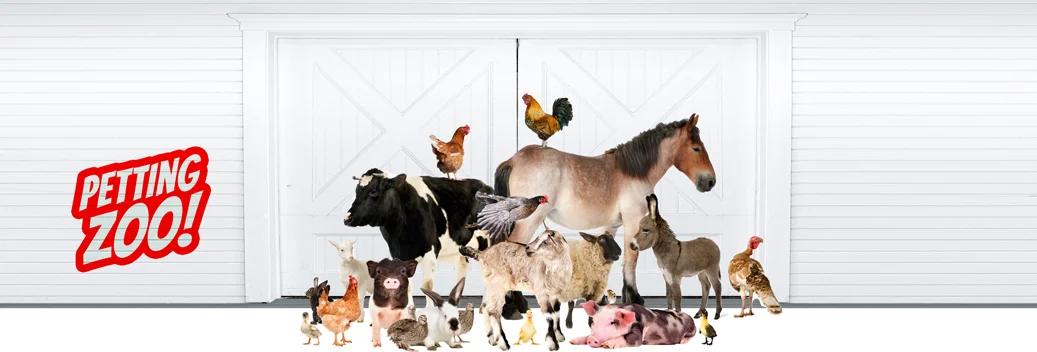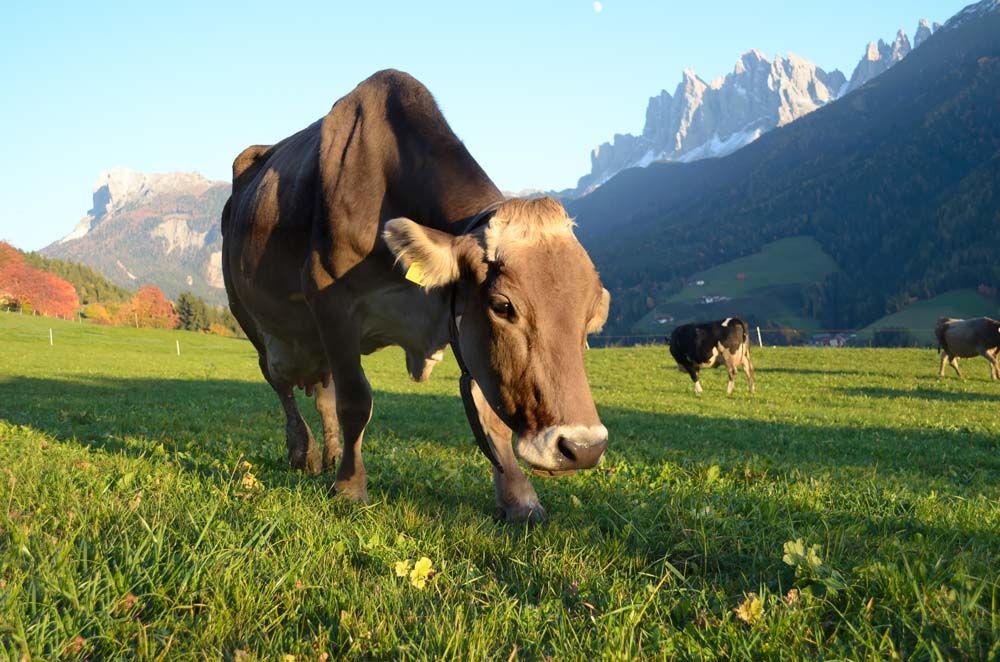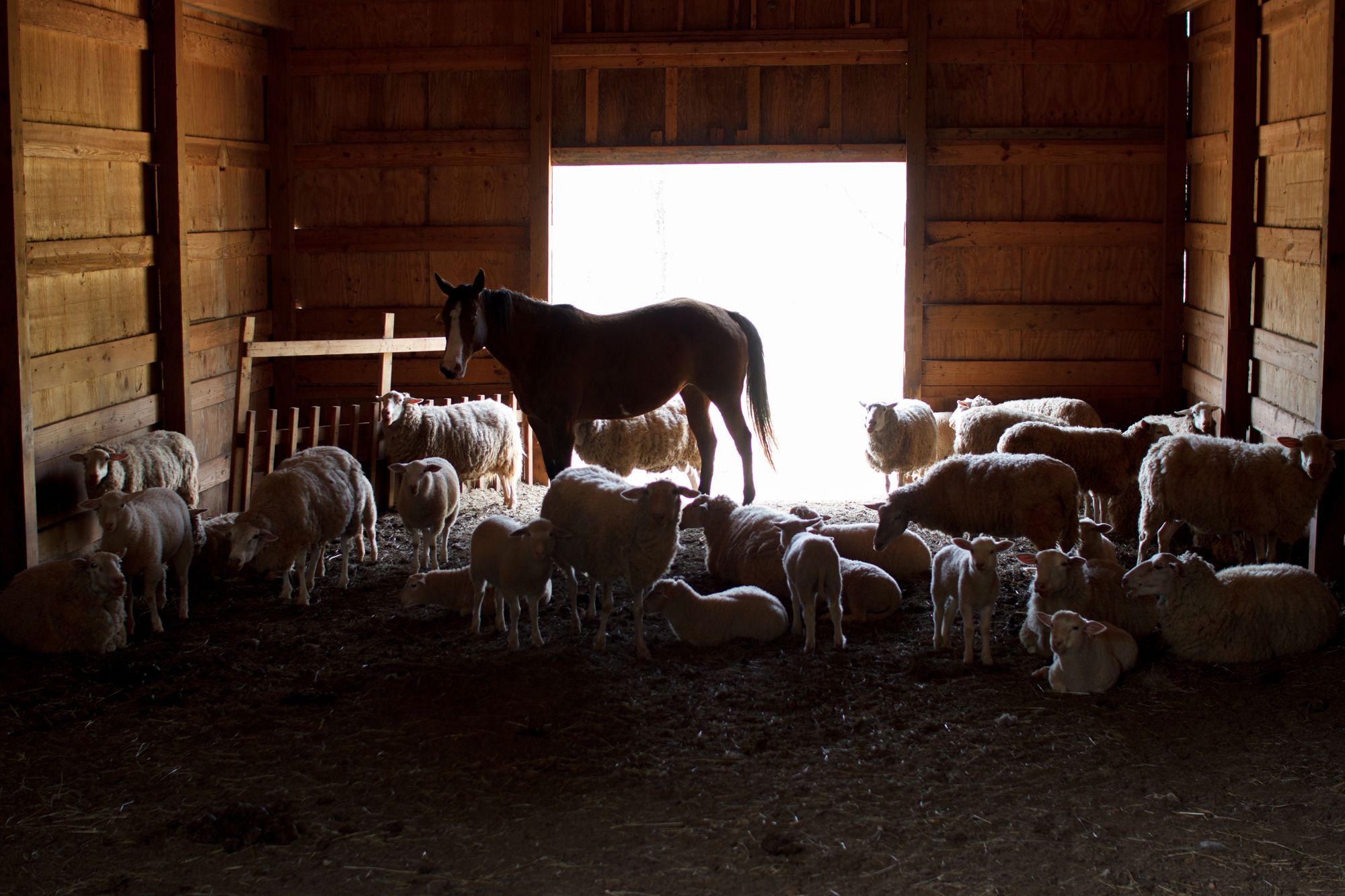So, You Want To Start A Zoo?


Or, maybe you have one already—you better check
It sounds so simple. We start out with a cow and a calf, later add in a couple of horses, then decide to get goats, rabbits and a guinea pig. As the years pass, we add a retired miniature donkey, a flock of quail, two turkeys, and an opinionated duck.
Over time, we form relationships with them. We give them names. We learn their personalities. We get attached.
So we keep them. We keep them and feed them and care for them and we wouldn’t dream of parting with them because by now they’re practically family. But over time, it may indeed
look as though we’re trying to start a zoo.
We wouldn’t REALLY start a zoo…would we?
Maybe the idea has actually crossed your mind. Maybe you saw the 2011 film “We Bought a Zoo,” in which Matt Damon’s character realizes that with just “twenty seconds of insane courage” you can move mountains, or, at the very least, buy a zoo. Maybe you look around at your menagerie of livestock and think that a foray into agritourism via a petting zoo could be a possibility.
The truth is, there’s a lot of planning, preparation, and red tape between you and starting a petting zoo. The liabilities, the legalities, the biosecurity considerations—it might be more than you want to tackle. But if you love a good challenge and have an interest in agritourism, a petting zoo could potentially be a source of income. If you have a true passion for your chosen livestock breeds and love to raise awareness, your petting zoo could be a wonderful way to educate people about the wondrous diversity in breeds. And there’s something heartwarming about the idea of your beloved animals impacting the lives of others in such a positive way.
There's something else to consider--and that's the workload. Caring for animals is time-consuming, physically demanding, and doesn't stop when the weather's nasty. You'll want to be sure that you can comfortably care for all of your critters. You don't want to wind up in a situation where the workload is more than you can handle or you're unable to give your animals optimal care. Keep your animal population to a number you can easily and comfortably maintain and you'll be starting your petting zoo on the right foot.
Location is another important factor.
Location is an important factor, though. If your farm is off the beaten path—as many farms are—it could seriously impact the viability of your petting zoo idea. But bringing visitors to your farm isn’t the only option. If location is an issue, you could consider starting a mobile petting zoo and travel with your animals to your clients. Maybe you’ll discover that you love toting a few of your furry friends to birthday parties, festivals, and other events. (Obviously this approach is easiest with smaller animals, so that’s another factor to consider.)
Sharing your menagerie with the world…virtually
But maybe you don’t love the idea of traveling with your zoo. No worries! You can share your love of your livestock and your farm virtually, too. The world is at your fingertips with social media. Maybe that retired hen is a future YouTube star, or maybe you’ll start a Facebook page to share updates on your animals via posts and videos. Followers of your page can enjoy and appreciate your animals as they follow along in real time with the ups and downs of farm life. It can be an educational and enlightening experience for people who don’t live the rural life but wish they could.
This is especially true if you keep a variety of livestock, including rare or endangered breeds. Introducing these breeds to people increases their visibility and helps ensure their future. So even if you aren’t inviting visitors to your “zoo” in person, you can still share the joys of these special animals virtually—and to a wider audience than you could ever achieve with an in-person zoo.
And who knows? Maybe your opinionated duck will take Instagram by storm. Those reels might just “quack” people up!
About the author
Samantha Johnson is a writer, farm girl, and the author of more than a dozen books on rural living. She lives on a farm in northern Wisconsin with a colorful herd of Welsh Mountain Ponies, a bossy Welsh Corgi, and a wide assortment of tomato plants. View her portfolio at samanthajohnson.contently.com
The USDA has some advice for you
https://ask.usda.gov/s/article/how-do-i-obtain-a-license-under-the-animal-welfare-act
Tags:Country Critters

Acreage Life is part of the Catalyst Communications Network publication family.
















